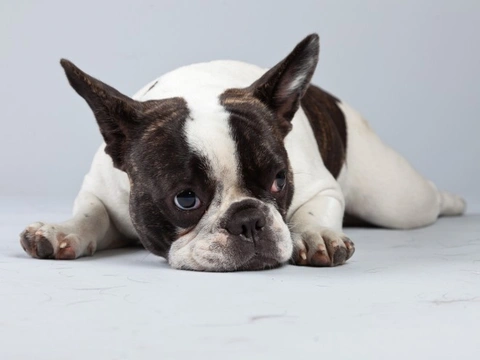
How a Dog's Behaviour Can Change With Old Age
Nobody likes to admit they are getting old and sometimes even have a problem realising their beloved dogs have aged too. Anyone who has shared their lives and homes for years and years with a canine companion, may not realise just how much age has affected their overall behaviour.
Dogs live longer than ever these days, all due to the fact that veterinary medicine and the food we feed them is so much better than it was before. Dogs become valued members of a family and when the kids have grown up and left home, your canine friend is still there to give you all the love they can. However, as your dog gets older their behaviour might change in certain ways, sometimes it could be quite a subtle change whereas other behaviours are more noticeable and these include the following:
Is Your Dog More Talkative Than They Used to Be?
A lot of dogs get more talkative as they enter their golden years. It could be they are feeling a little disoriented due to cognitive dysfunction or it could be for the following reasons too:
- Deafness is setting in
- They could be in pain
- They might be suffering from arthritis
Taking an older dog along for regular health checks with the vet means you can rule out a lot of conditions, but if no physical reason can be found for them being more vocal than usual, you may need to consider retraining them always remembering to offer lots of healthy rewards when they are nice and quiet.
Do You Find Your Dog is More Restless During the Night?
Older dogs often experience a loss of hearing or their vision is not as good as it used to be. This can impact their sleep pattern. The other thing you need to bear in mind is your pet may need to go to the toilet more often than they used to when they were younger which means they can be restless during the night simply because they need to go out to do their business.
Other factors you need to think about are that an older dog may react to certain noises which didn't bother them in the past. The best way to overcome this type of problem is to tire your dog out during the day being extra careful not to overdo it! The best time to interact with your dog is in the evening by taking them out for a nice longish walk or to play a game of fetch with them in the garden so that when they come back indoors, they are nicely relaxed and tired. This might help them get through the night without waking up and pacing about.
Do You Find Your Dog is More Anxious When Left Alone?
Sometimes when dogs reach their senior years, they get more anxious if they know you are going to leave them on their own. You may find your dog may start being a little destructive around the house when there's nobody in and when you are at home, they follow you about everywhere you go. Sadly, this is a type of insecurity that many dogs experience as they age and more especially when they reach their golden years. There is not a lot you can do about it apart from showing your dog lots of affection and patience when you are around.
Do You Find a Few Accidents Around the Home?
With old age comes wear and tear on the body and this includes less control over bladders and bowels. Older dogs tend to sleep for longer periods of time during the day and may have a problem moving around. This can lead to a few “accidents” happening around the home. However, other health issues could also be the cause which includes them developing a brain tumour.
Again, regular check-ups with the vet would rule out any medical issues which should put your mind at rest. The best way to deal with the problem if it is not a health issue, is to gently retrain your dog and to make sure they are taken out for walks more frequently so they can do their business where they should especially last thing at night and then again very early in the morning.
Is Your Dog More Scared of Things?
It's never nice when you suddenly realise your dog is scared of something or a situation they never reacted to in the past. It could well be that your dog's vision is not as good as it once was and they are finding it hard to see where they are going or who is coming towards them. Once the vet has ruled out any health issues which might be affecting your dog's sight, the best way to help your pet is make sure they know where they are and not to move things around the house which may end up confusing them.
Has Your Dog Become Destructive?
Dogs when they are feeling any pain or discomfort they may become a little destructive which often happens as they grow older and the aches and pains start setting in. This type of behaviour is hard for owners to cope with because a dog's destructiveness is never “full on” naughtiness but rather due to some sort of physical pain or cognitive disorder.
The only real way of dealing with the problem is to make sure your pet is not left anywhere they may injure themselves or in rooms where you keep treasured items which your pet might end up destroying. It's also a good idea to offer your dog lots of chewy toys making sure they are good quality items they can gnaw on when they want to.



